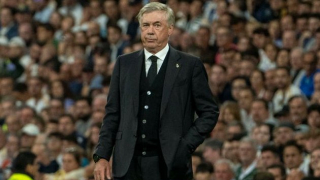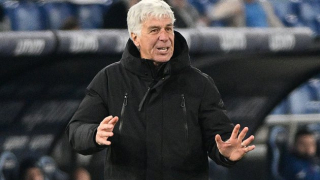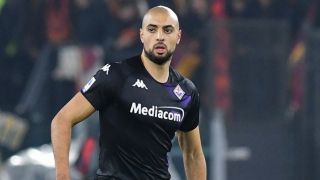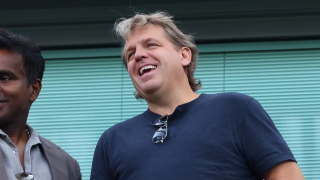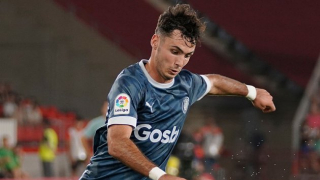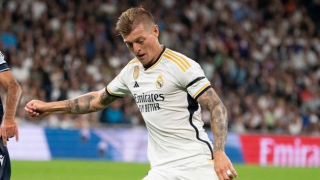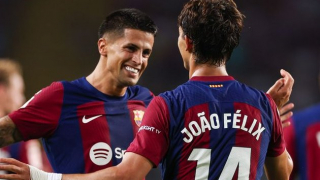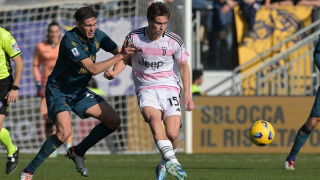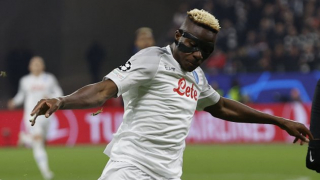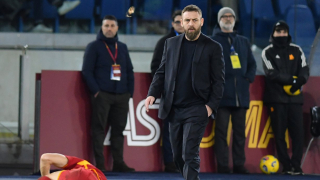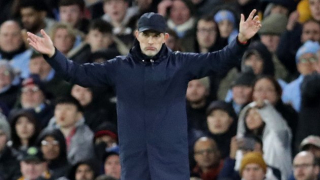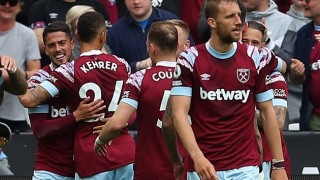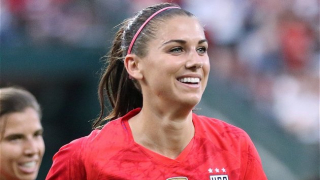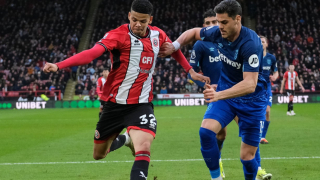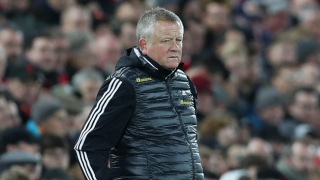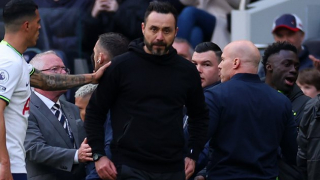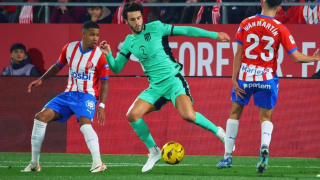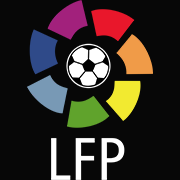Jose Bello-Amigo has an interesting story behind his football career; a story that not many players from New South Wales get to tell. The 30-year old of Spanish descent began his senior football career when he had just finished high school playing for St. George in Sydney.
In his junior days he played alongside names like Harry Kewell, Paul Reid and Brett Emerton in the NSW team that won two national championships and not long after he moved to Spain and won a contract with Racing Ferrol, a second division club based in the community of Galicia in the north-west of the country, before moving on to spend a further three years with Poli Ejido.
tribalfootball.com caught up with Jose to find out more about his story and to discuss all matters football, as well as Spanish lifestyle, charity work, former teammates, the struggle being faced by lower-league Spanish clubs and the never-ending festivals that Spaniards enjoy.
Tell us how you first ended up at Racing Ferrol.
"I had always maintained the goal of playing professional football in Spain and I travelled over at the age of 21 after overcoming some personal setbacks in Australia. My Galician background and my father being an ex player of the club lead us to make the decision to approach Racing and not other clubs.
"I arrived in Ferrol on my own without an agent and without having spoken to the club prior to my arrival. I was very fortunate to encounter an unorthodox club in comparison to the way clubs function in Spain. Ferrol gave me the opportunity to trial during 7 days, they had 3 keepers already signed but Luis Cesar, head coach at the time saw potential in me and decided to offer me a 4-year contract.
"A lot of circumstances fell in my favor, my father had played there in the 50's but everything had changed by 2001. I knew that Ferrol were in the 2nd division and it was the best way of beginning a professional career. The experience was extraordinary I believe that sometimes we are guided by something and we followed our intuition."
After seven years in Spain, what's behind the decision to return to Australia?
"There exist several reasons for wanting to return to Australia.
"The 2nd division in Spain is currently experiencing a period of change and uncertainty. A lot of clubs have found themselves in very delicate financial situations and this has produced a wide range of problems. Clubs such as Alaves, Levante, Celta, Las Palmas, Real Sociedad, Sporting Gijon and Malaga are all being administrated by an appointed judge.
"More clubs will be applying this strategy to sustain themselves and these concerns and lack of confidence has lead me to contemplate a move. I also feel as though the A-League with the introduction of Townsville and Gold Coast are elevating the level of quality and value to the league. The Asian Champions League is also a fantastic opportunity to participate at an international level and to compete with the best squads in Asia is very motivating for players, clubs and fans.
"I believe that it's an exciting time in Australian football and the organization has been able to expand the game effectively within other countries."
You spent four years at Racing before moving to Poli Ejido, how did that move come about?
"After establishing myself as the first keeper in the 2002-03 season, I played 122 matches straight with Racing and this helped me promote myself with in the league. Poli became interested in me and knew that I was finishing my contract and would become a free agent. My last season in Ferrol, the team played good football and we managed to draw the attention of a lot of clubs that begun to follow the progress of several players in the squad.
"When a team plays well everyone benefits and after negotiating with Nastic de Tarragona and Poli Ejido along with Racing's renewal offer, I decided on Poli Ejido."
Did you ever receive interest from Primera Liga clubs? How close did you come to moving?
"When I concluded my second season in Ferrol and had begun to play regularly, there was talk of possible interest from Betis and Espanyol. My president had told me that Espanyol had spoken with him but nothing ever eventuated."
Tell us a little about Stephen 'Sunny' Sunday ... do you think Valencia was the right move for him?
"Sunny's story is like many young Africans that make their way across to Europe with a lot of faith and self-belief. I also lived with Ikechuku Uche in Racing de Ferrol and his story is similar. Sunny arrived in Europe at 15 years of age and begun an odyssey; lived in Paris, Madrid and eventually arrived in El Ejido.
"He was first spotted playing an immigrants cup that is held every year in Madrid. The cup is made of immigrants from Nigeria, Ecuador, Columbia, Senegal, Morocco, Argentina etc. Sunny is Nigerian and an agent saw him and moved quickly to offer him his services.
"Sunny has an extraordinary physical build for playing football and was extremely dedicated and professional. I think his move to Valencia gave him the opportunity to do what all Africans dream of and that is provide a quality lifestyle for their families. "His individual dream was to play 1st division football and that was also accomplished.
"Sunny is now struggling to find his spot within the 1st division; he is on loan to Osasuna but is not playing and with three years left on his contact with Valencia I'm sure he'll display his talent and potential soon in the 1st division."
Why has Real Madrid B and Barcelona B struggled in recent seasons? Is it a surprise in Spain that they're still outside the Segunda Liga?
"The promotion system in Spain consists of a play-off series. This year the system has been modified to benefit the club that wins first spot in their respective league.
"The 2B is made up of four groups; each group has 22 sides, which creates 88 teams that compete for 4 positions that win promotion to the 2A. It's a complicated process and often the best teams don't receive the reward of going up.
"Out of the four groups, first you have to qualify yourself for the play-off phase which means you have to finish the league within the top four of your group. Those 16 teams then go into a draw and play a home and away phase.
"One of the reasons why Barcelona and Madrid haven't won promotion is due to this complex system that often jeopardizes a lot of squads that are in better financial and organizational structure to participate in the 2A. Due to these conditions it's not a surprise that Madrid B and Barca B don't play in the 2A."
What are your plans for 2009? Do you want to play in the A-League?
"Returning home is definitely an attractive possibility. I would like to form a part of the A-League's explosion in Australia. It's a league that is growing and the professionals that are involved with the clubs are doing a great job.
"I see that more Australians abroad are beginning to be lured back by the A-League's professional set up.
"I feel motivated by the possibility of playing in Australia and it's important that one feels confident, inspired and secure of where they are and I believe that Australia can provide me with these elements at this moment in my career. I follow the league from Spain and I've seen it's progression and it's headed in the right direction."
A major change of lifestyle would greet Jose if he was to return to Australia. The Spaniards have such rich culture and traditions and the amount of free time professional footballers get can be attractive to those who want to learn more about their surroundings and partake in life outside of football.
Jose was good enough to give readers an insight into the Spanish lifestyle and being a professional footballer in Spain and also shared his other interests apart from the world's greatest game.
"The lifestyle in Spain is very laid back. The Spanish maintain their traditional siestas which should be introduced by governments worldwide.
"As a footballer we are privileged to live a very fortunate way of life. Training 8 sessions a week and being given a lot of free time to rest. It's not like England where squads have breakfast together, then have lunch together with in the installations of the training grounds. "That system or infrastructure hasn't been introduced yet.
"I lived in two regions, Galicia and Andalucia. The two are very different and the people also. Galicia's way of life is a contrast to Andalucia. In Ejido which is in the south, my lifestyle changed dramatically due to the heat.
"The weather in the south is ideal for an outdoor lifestyle were as in Ferrol Galicia the weather tends to be colder. I spent a lot of my free time discovering the region were I've been living.
"I don't tend to stay indoors and sleep but much prefer to be active and connect with the people, learn about the traditions, understand their culture and attend their festivals, food festivals, Easter festival which is incredible, the amount of devotion and faith is overwhelming.
"Each small town have their own particular festival, arts festivals etc....
"The Spanish are always enjoying themselves. Spain is the country of festivals, name days, saints birthdays, public holidays, long weekends, it doesn't seem to stop. Even though with football we only have Christmas and summer off, our free days every now and then coincides with these special calendar days. The Spanish cuisine is another essential factor that has a lot of influence in the lifestyle."
Jose has many loves outside of football and enjoys helping those in need.
He has used his powers as a professional footballer to engage with the communities and work with all sorts of different people. He also reveals how the life of a professional footballer is not always easy as is reported in the media and that there are many other things to life:
"I have collaborated in community activities, attended schools to give talks, organised social functions, visited hospitals, worked with charities and these are experiences that I found very rewarding. The last couple of seasons I've dedicated a lot of time to these areas and it's one of the great advantages of playing professionally. Football builds a lot of bridges and has the capacity to assist with in distinctive levels of society.
"During the past 7 years I've studied, participated in a lot of activities outside football and worked on personal projects. The lifestyle has been good, although football has presented me with a lot of adversities and challenging moments over the years. It hasn't been a garden of roses. When I was younger I had a concept of playing professionally and due to my experiences that concept or perception has been modified.
"It's not an easy process for those that perhaps don't reach the pinnacle but do make a career out of it and achieve a lot of personal goals.
"There are a lot of factors that have to conspire in your favour to reach different levels."
Jose leaves us with a very important message that perhaps has kept the door ajar for a future coach-in-waiting...or perhaps he is just a realist.
"I suppose it all depends on how one judges success. A lot of young players with talent need more mental preparation rather than technical training."

